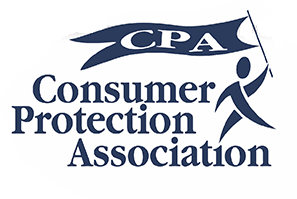Our quick guide to the Consumer Rights Act 2015 Unfair Terms
28 Jan 2019
Here's everything you need to know as both a consumer and trader when it comes to the unfair terms segment of the Consumer Rights Act 2015.
As a trader, you have to navigate the world of legal affairs very carefully if you don’t want to suffer the consequences that come with the slightest slip-up. It can be unbelievably daunting to sit and read through the hundreds upon hundreds of pages that accompany the various acts and legislation but it’s important to do so to understand what you can and can’t get away with.One area that both traders and consumers alike need to regard with great importance is the unfair terms section of the Consumer Rights Act 2015 as it can affect everyone. Luckily, we’ve condensed what we believe to be the most important parts, so you don’t have to sift through it all yourself. Before we can begin to dive headfirst into the various implications and rules that come with this section of the act, we need to understand what unfair contract terms are deemed to be. To put it simply, the terms of a contract become unfair when the customer is put at an unfair disadvantage. A fairness test is conducted in which it’s evaluated whether the wording that was used in the contract favours the trader more than the customer.Many factors are taken into consideration when analysing the contents of the contract, including elements such as:
Before we can begin to dive headfirst into the various implications and rules that come with this section of the act, we need to understand what unfair contract terms are deemed to be. To put it simply, the terms of a contract become unfair when the customer is put at an unfair disadvantage. A fairness test is conducted in which it’s evaluated whether the wording that was used in the contract favours the trader more than the customer.Many factors are taken into consideration when analysing the contents of the contract, including elements such as:
Understanding unfair contract terms
 Before we can begin to dive headfirst into the various implications and rules that come with this section of the act, we need to understand what unfair contract terms are deemed to be. To put it simply, the terms of a contract become unfair when the customer is put at an unfair disadvantage. A fairness test is conducted in which it’s evaluated whether the wording that was used in the contract favours the trader more than the customer.Many factors are taken into consideration when analysing the contents of the contract, including elements such as:
Before we can begin to dive headfirst into the various implications and rules that come with this section of the act, we need to understand what unfair contract terms are deemed to be. To put it simply, the terms of a contract become unfair when the customer is put at an unfair disadvantage. A fairness test is conducted in which it’s evaluated whether the wording that was used in the contract favours the trader more than the customer.Many factors are taken into consideration when analysing the contents of the contract, including elements such as:- What is being sold or provided
- How a term relates to other terms within the contract
- The circumstances at the time the term was agreed
The consequences of a contract being deemed unfair
If the consumer in a scenario decides that they’ve been the victim of an unfair contract and an investigation takes place where they’re found out to be correct, then the repercussions for the business can be ruthless. As soon as a verdict is reached, and the contract is deemed to be ‘unfair’ then the contract is no longer legally binding on the affected customer and then enforcers can take action to stop you from using this contract again in the future.Avoiding an unfair contract
Both traders and consumers alike will want to avoid unfair contracts. Traders can avoid creating an unfair contract by making sure that the terms are transparent and easy to comprehend. It’s also important that you take into account a consumer’s interests when writing up the contract and that you don’t take advantage of any vulnerabilities a consumer might have.For consumers looking to avoid being taken advantage of, you should be both wary and cautious when reading a contract before even thinking of signing it. It may seem like simple advice, but you’d be surprised at the number of people that don’t bother to read everything and just sign on the dotted line. Take the time to be thorough if you don’t want to regret it later.